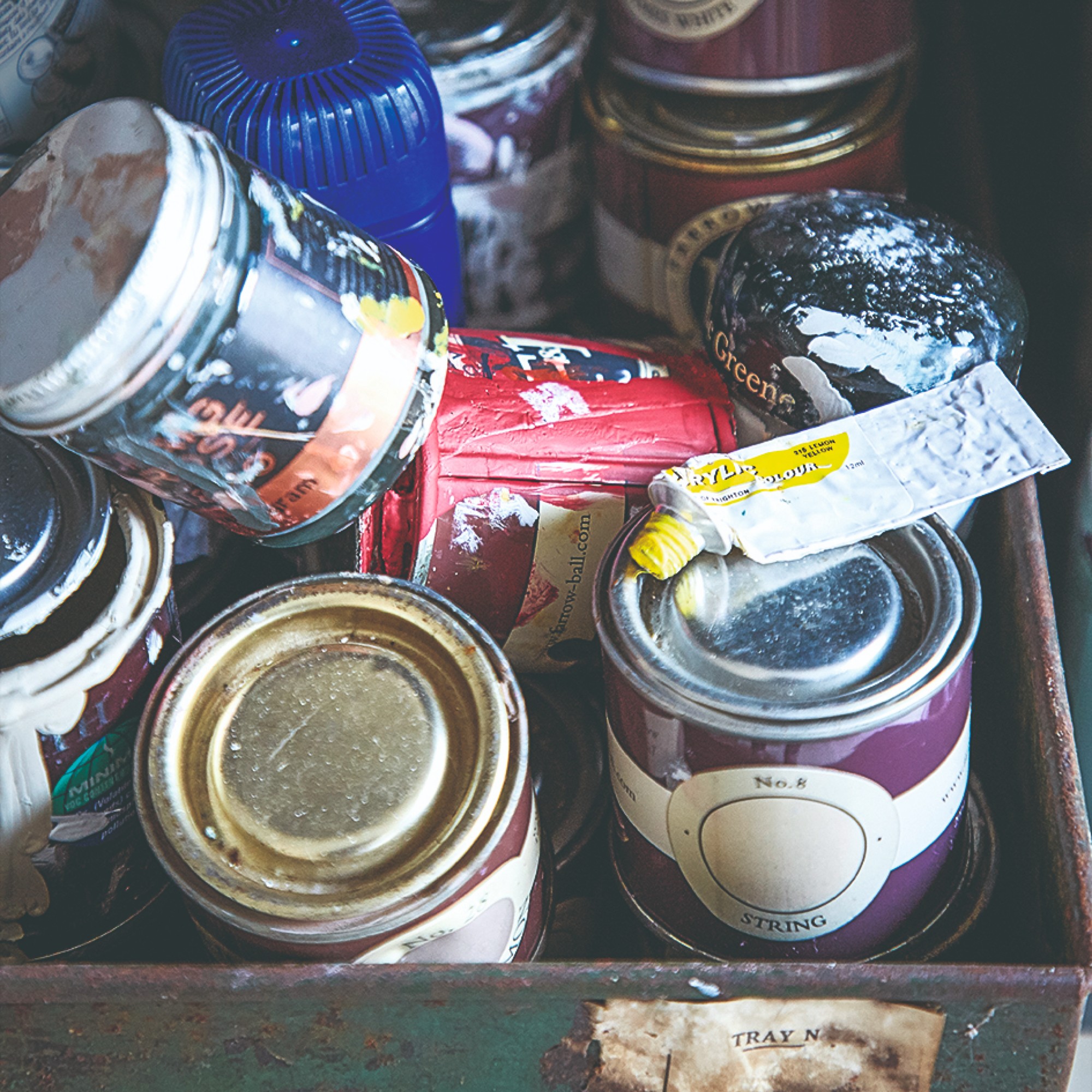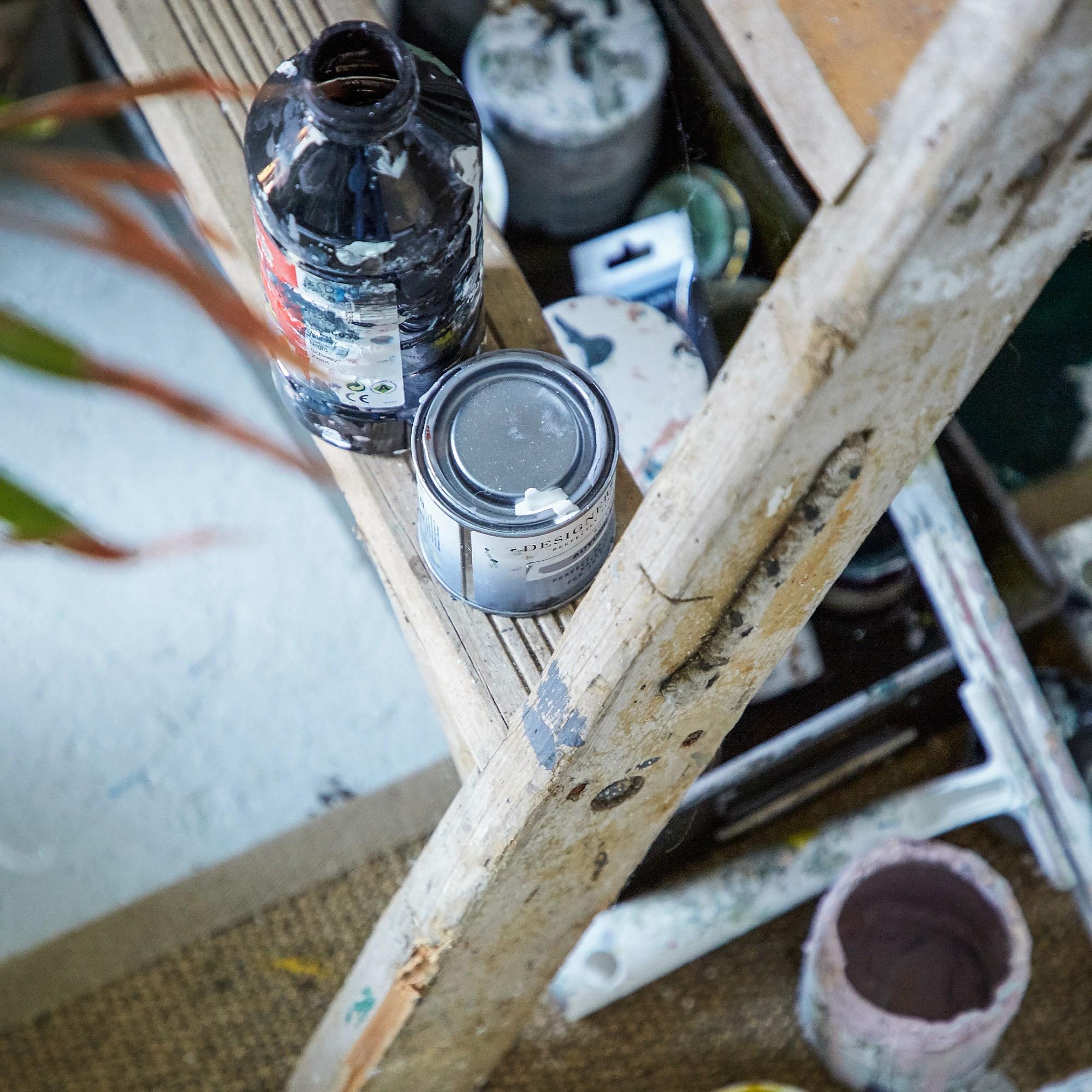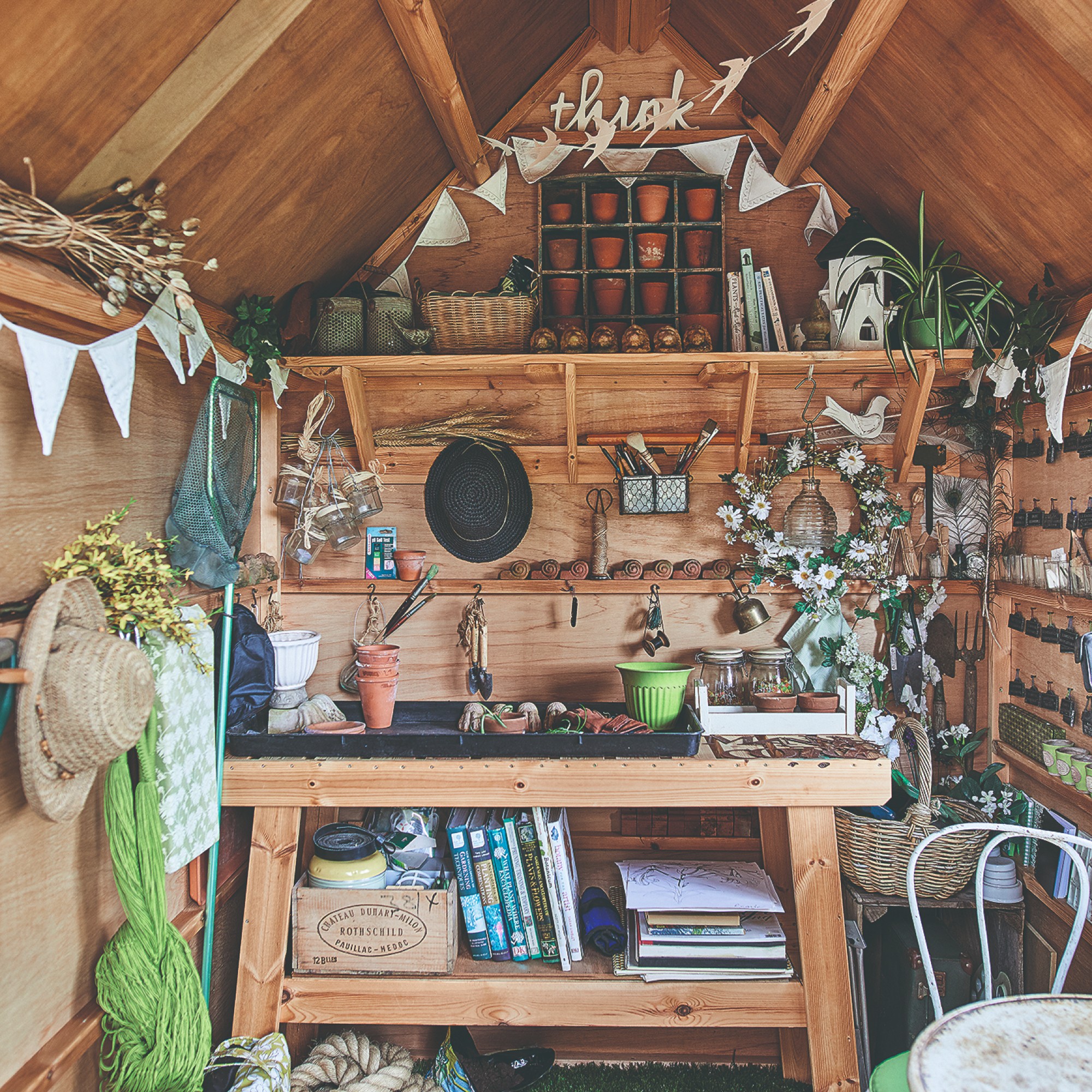
If you’re an avid DIY-er, then knowing how to store paint that’s in your possession is crucial to keep it from spoiling. The wrong conditions can make your paint separate, congeal or dry out and become unusable as a result. One very common mistake when storing DIY supplies like paint is keeping it in the garage or the shed.
That’s right! Experts agree that garages and sheds are far from ideal for storing paint due to their environmental conditions like fluctuating and extreme temperatures.
Who knew?! Our pros also shared what locations in your home are far more suitable for storing paint. So read on to find out.
How to store paint

If you’ve figured out how much paint you need for your next DIY job and are either looking to store the leftover amount or the entire tin or tins until the right time comes, then knowing where and how to store and not to store it is key.
‘Storing paint properly is key to maintaining its quality for future use and, generally, it isn’t recommended to store it in the garage or your garden shed,’ starts Fantastic Handyman's home improvement and painting expert, Lucy Fernando.
‘While it may seem logical to keep leftover paint in a shed or garage, storing paint in these locations is a bad idea,’ warns Pat Gilham, painting and decorating expert at MyJobQuote.co.uk. ‘If you are going to reuse the paint within a couple of days, then it may be alright, but for any longer than that, it’s not advisable.’
Why you shouldn’t store paint in a garage or shed

The conditions in sheds and garages just aren't right for paint to thrive in.
‘A shed is exposed to weather extremes, cold in the winter and heat in the summer,’ Pat explains. ‘It’s also a damp location. None of these are conducive to keeping your paint in reusable condition. Metal paint cans can also rust in damp conditions.’
‘Your garage is not ideal either as it is not going to maintain a consistent temperature which stored paint needs to be reusable,’ he concludes.
Lucy adds, ‘Usually, the garage is the place where heat sources, such as water heaters or direct sunlight are present which can negatively affect paint. On the other hand, garden sheds can become too cold, especially in the colder months, and it’s highly recommended not to store paint in such unheated areas because it will separate and, when it freezes, it’ll become unusable.’
Where to store paint instead

So what to do with leftover paint or new tins of it you have lying around (probably in your garage or shed)? The ideal places for storing paint are those with a consistent temperature, where it’s dark, dry and ideally atop a shelf.
‘It should be kept indoors away from radiators and direct sunlight,’ says Sarah Lloyd, paint and interiors specialist at Valspar. ‘Anywhere with consistently cool and dry conditions is best, often under the stairs or in a utility room.’
Lucy chimes in, ‘The ideal temperature for paint storage is typically between 10°C and 27°C and away from extreme heat or cold. Exposure to direct sunlight can lead to colour changes and deterioration of paint quality, so it’ll be safest to store it in a dark or cool area, away from windows. Store your paint on shelves or racks to keep it organised and prevent damage.’
‘Generally, the ideal place for storing paint will be a basement, another indoor spot with temperature control and reduced humidity or a dedicated storage cabinet.’

FAQs
How do you keep paint after opening?
‘If the lid of your paint can has been damaged you can decant the paint into
large glass jars with screw-on lids. A good tip for keeping paint in good condition is to put some plastic wrap over the opening before closing the lid,’ Pat advises.
Is it safe to store paint in the house?
Absolutely, it’s actually ideal to keep your paint indoors in your house.
‘Inside your home is the best place. Under the stairs or in a utility room are both good places to store paint as these locations are not going to get too cold or too hot,’ Pat says.
We’re still shocked but it’s good to learn now rather than later that we’ve been storing our paint all wrong all along.







